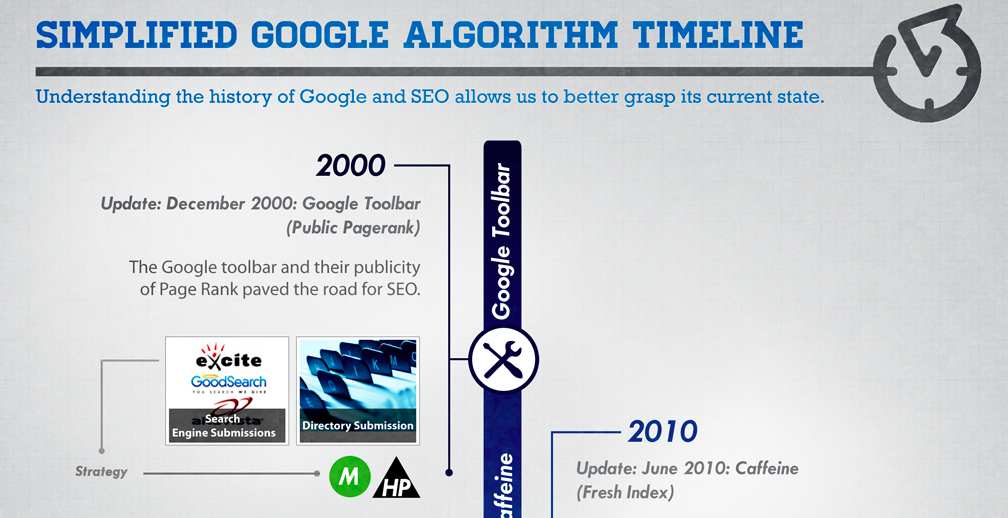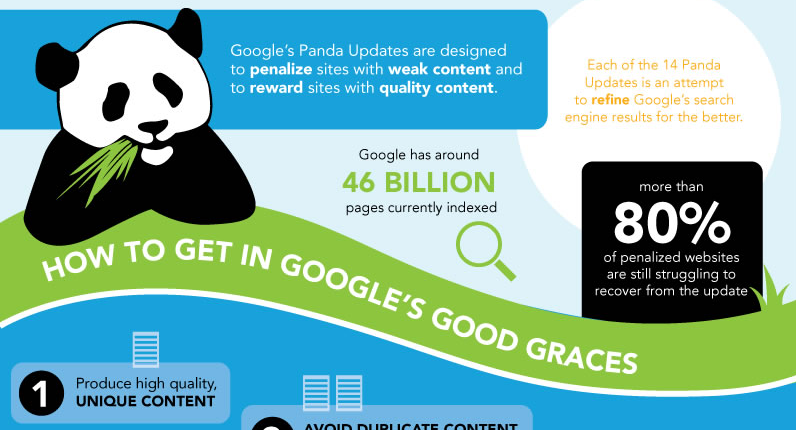Mobilegeddon, Panda, Hummingbird, Penguin, Pigeon – these are seemingly innocent names of Google algorithms, which play a very important role in the process of positioning websites. Algorithms are nothing more than sets of factors that are used to index and evaluate websites. They determine the position of a page in search results. What rules should I follow to lift my site to the top of the search engine?
(Source): https://sumitdutta.wordpress.com/2014/04/04/how-google-search-works-infographic/
1. Responsive website
Today, websites that are not adapted to mobile devices, such as a smartphone or tablet, quickly lose their ranking. This trend will continue to be up to date, so having a responsive website is a must. Mobilegeddon, a combination of mobility and armageddon (mobile revolution), determines usability for all mobile devices.
2. High-quality websites
Panda algorithm, updated about 20 times since 2011, rewards sites that have high-quality content. Effectively reduces the position of a site that has duplicate content. Not surprisingly, the content on the site is intended primarily for readers, not robots. Therefore, pages can easily drop out of the TOP 10 if the content on them is over-saturated with keywords.

(Source): https://moz.com/google-algorithm-change#2016
3. Long tail
It is in Polish “positioning for a long tail”. How does Hummingbird reward long tail SEO? If we adjust the content on our site under 3- or 4-word phrases, we have a better chance of being at the forefront, because the search results will be more similar to the query of internet users on Google. It’s always a good idea to check the conversion of key phrases from long tail to Planner Keyword. When creating texts, it is therefore useful to pay attention to the context and consider what question the user can type in the search engine to come across this text.
Click below on “Like this page” and you will always be kept informed about new articles from my blog.
4. Get rid of unnatural links
To do this, you should trace all links from poor quality sites that lead to your site. Context counts for the relationship between the parties. If the subject matter varies significantly, Google may treat links as unnatural. Unnatural links are cared for by the Penguin Algorithm. One link from a valuable site is worth more than a dozen links from generators. To do this, it is worth to bet on linkbaiting.
5. Encourage users to visit again
A small amount of content on the website will be a signal to Google (Panda Algorithm) that your website is of little value. In addition, interesting content is useful for readers and you need to encourage them to come back. You can certainly increase your chances by posting call-to-action (call to action) buttons on the website.

(Source): https://www.seo.com/
6. Try to reduce the bounce rate
Bounce rate is a certain percentage of users who have visited your website and then left immediately. This leads us to think about what might be causing this. Maybe the content or interface are not very interesting? In this case, the Panda algorithm may also reduce our position in the search engine.
7. Keep local searches in mind
Internet users do not just search for results on general phrases, they are increasingly narrowing phrases in terms of location. For example, they type “Plumbing Services Warsaw” into Google, looking for a specialist in their city, rather than “hydraulic services”, where the results will include offers from all over the country. The Pigeon update is responsible for this.
